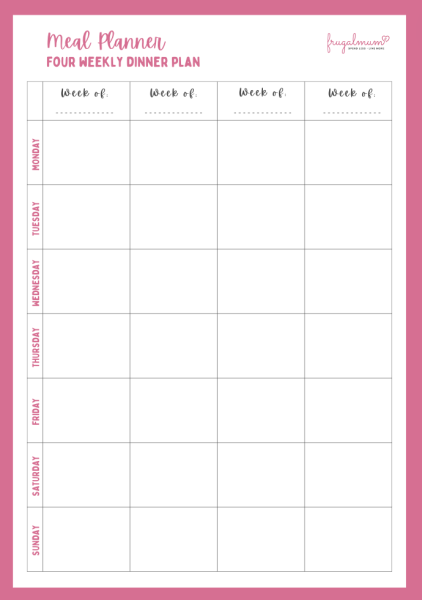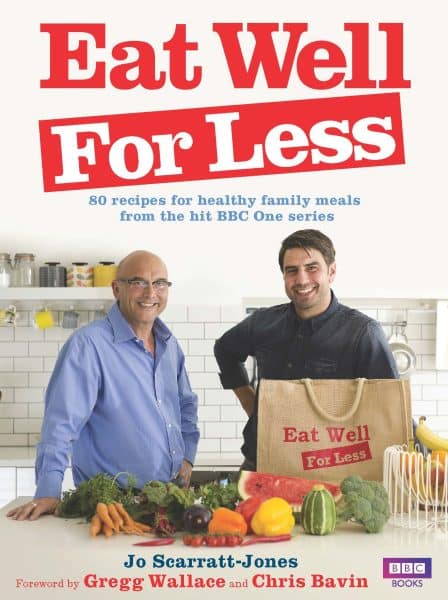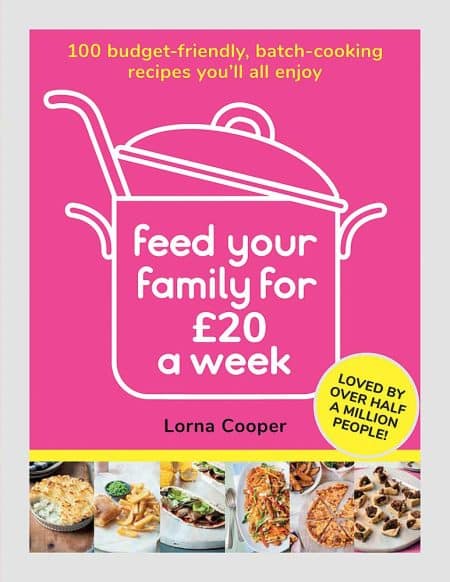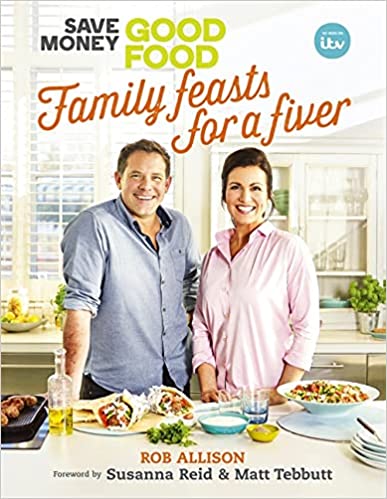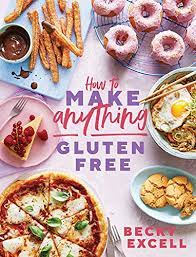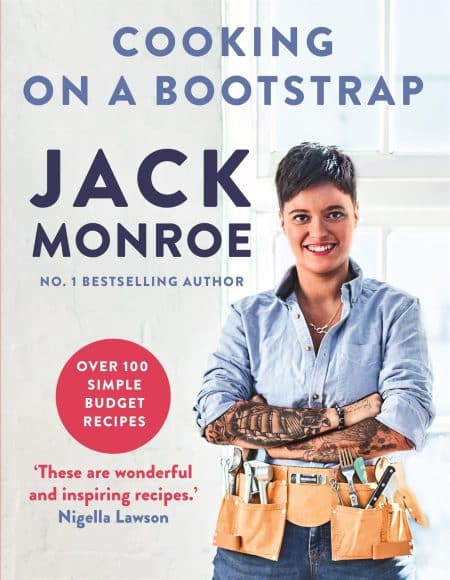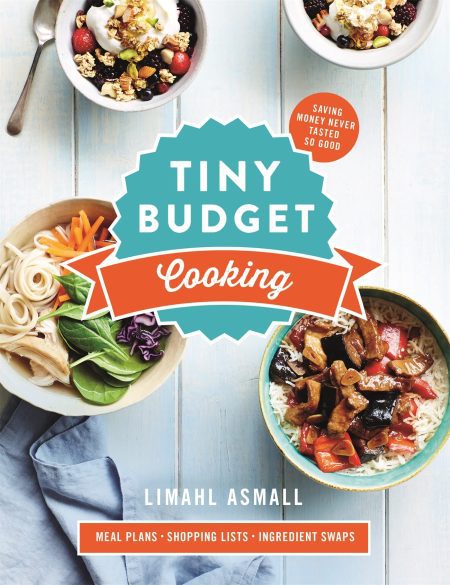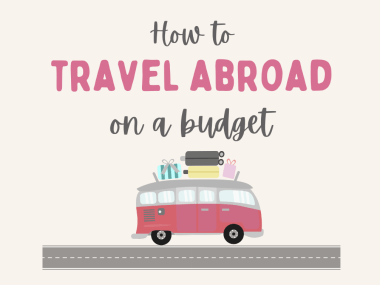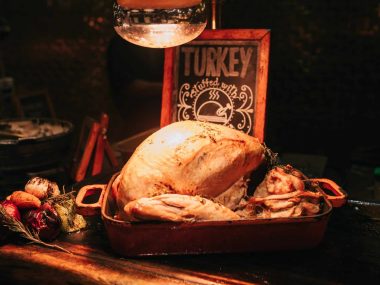This post may contain affiliate links.
Why is food budgeting important?
When it comes to grocery shopping vs eating out, you’ll always save a fortune by eating at home. Taking the time to meal plan, loving your leftovers and shopping smart can make a huge difference – even if you’re trying do your weekly shop with little money it’s absolutely possible to eat well.
Because food shopping is a regular weekly expenditure, it’s so important to keep your spending under control – even small amounts can really add up over time. And, with food, we have nothing to show for it afterwards! Cut back just £20 a week and you’ll have an extra £1k in your bank account by the end of the year! 🎉
How can I save money on my food shopping bill?
It’s really easy to overspend on food, and have little to show for it. UK supermarket prices seem to be constantly rising, food shopping is now so expensive, and a lack of time and energy can have us headed towards expensive convenience foods. But the important thing to remember is that, while we have no control over inflation, we can make some small changes to reduce food shopping bills to something more manageable.
So, here’s how to save money on your food shopping – and feed your family for less – from brand switching, to batch cooking, and swapping fresh for frozen – here are 27 tips for food shopping on a budget to help you to reduce your weekly supermarket bill. (And a free, printable meal planner to help you get started!)
1. Set a realistic food budget
Be realistic about what you can afford to spend, and stick to your budget. Can you make simple swaps to reduce to costs? For instance, using a cheaper cut of meat, or ditching brand names for supermarket own brands, to make expensive dishes more affordable.
If you always go over budget try ‘cash stuffing‘. By using cash, and allocating it across your spending at the start of each month, you can’t physically spend more than you have. And, it’s been proven that we spend less when we use cash – spending on cards often feels like magic money, so heading back to cash can help to change bad spending habits and make us think twice before we spend.
Find out more about ‘cash stuffing’ here: How to budget using the ‘cash stuffing’ envelope system. And, if your supermarket offers ‘scan as you shop’ then that can also be a really useful tool to help you to keep on budget whilst you’re in the store.
2. Make a meal plan and shopping list
Plan ahead at least week’s worth of dinners, and make a shopping list of all of the ingredients you’ll need for each recipe, before you head to the supermarket. This will stop random purchases, missed items and help you to avoid buying produce that you don’t actually need.
I’ve started meal planning for four weeks at a time – it’s easier for when I’m feeling lazy, and because I like to batch cook I can clearly see when to double up on ingredients and when we can eat the extra portion in the freezer, and have a day off from cooking! I also find it helps me to stick to my monthly food budget too.
Tips for successful meal planning:
- If you want to stick to your plan, and avoid takeaways or throwing out wasted food, then keep it fresh. Don’t use the same meal plan every week – you’re much more likely to follow it (and enjoy it!) if you’re not bored of the same old meals.
- Cooking meals with similar ingredients will help to lower costs and reduce waste – think about how much of each ingredient you’ll need and what could be used for more than one dish to save time and money.
- Save money by swapping ingredients to accommodate what’s already in the fridge or your pantry cupboard.
- Plan to cook meals that will use fresh ingredients earlier in the week. That way, if you’re doing one big shop, the ingredients won’t have gone off by the end of the week. Utilise your freezer for the end of week meals, or pick items with a longer shelf life.
- According to Nimblefins.co.uk the average household spends around £135 each month on takeaways and restaurants – more than £1600 every year! Plan some easy or freezer based meals for nights that you aren’t able to cook from scratch to avoid ordering in. Have a night off from cooking when you need it – just make sure you’re prepared!
Download my free, printable four week meal planner to help you to get started.
3. Grab free food with Olio
If you’re not yet on the Olio app then you’re definitely missing a trick. Food items that are almost out of date are listed for free for you to collect locally – it’s a great way to cut your shopping bill and try new things. Just request the items that you would like and let the lister know when you’re able to collect.
We’ve had some amazing bits from Olio – tandoori meat, sausages, mackerel, bread, gluten-free products, fruit and veg. Just pop it in your freezer to keep it fresh, and plan the following week / month’s meals around what you’ve collected. It’s great way to reduce food waste and your shopping bill – it saves us £10 or more each week. Check out my Olio post for more info: What is Olio? How to use the Olio app to stop waste, get free food (and more!) & reduce your shopping bill!
4. Love your leftovers
In the UK we throw away a shocking 7 million tonnes of food and drink per year! And, a recent article reckoned that the average British household throws out more than £65 worth of food every month – around £800 annually – time to book a holiday instead!
The easiest way to cut back is to make the most of your leftovers – soups, sauces, quesadillas and curries are great ways to use up what you’ve got. To keep it simple, you might even be able to use last night’s dinner for tomorrow’s lunch – just pop it into a plastic container in the fridge to keep it fresh.
You may want to plan ahead to stretch the food too – could you buy a slightly larger chicken and use the extra meat from a roast for a stir fry the next day or to make a pie? Similarly, peeling a few extra spuds could leave leftover mash for bubble-and-squeak or fishcakes.
For lots of leftover ideas, and yummy recipes, make sure you read my post on how to make the most of your leftovers.
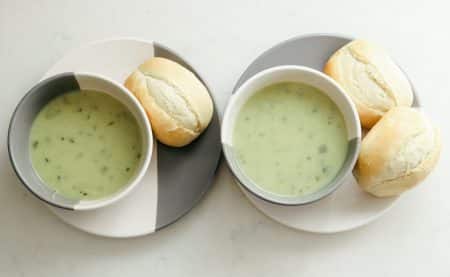
5. Check your cupboards and freezer
It might sound obvious but always check your cupboards, fridge and freezer before you shop – we’ve all come home from the weekly shop to find we already had 6 tins of baked beans / sweetcorn / tuna etc already.
You can also work with what you have in your freezer or pantry to save money and use up forgotten about ingredients! Have a look through to stop food hitting its use-by date and plan recipes around what you already have. With the internet at our finger tips, it has never been easier to find a recipe to use up a particular set of ingredients!
If you’re having a particularly skint week, eat from your freezer and pantry – I invented a taco recipe doing this and the kids have made me cook it almost weekly ever since! Just make it up!
6. Batch cook meals and snacks
For budget friendly family meals, one thing that can save you lots of money (and time!) is batch cooking. I do A LOT of cooking in bulk and it makes life so much easier to have healthy, ready-cooked dinners in the freezer for days when we’re home late or I can’t be bothered to cook. It also reduces how often we rely on takeaways which can really add up.
Batch cooking can prevent ingredients from being wasted too, and meals cooked in bulk are usually cheaper as the more you buy of something the cheaper it will be – so double up and fill the freezer with tasty meals and snacks. The Batch Lady: Cooking on a Budget cookbook is a great place to start, and I’ve got some batch cooking recipes on here too:
If you have limited freezer space, re-usable freezer bags are amazing as they take up less room than tubs. It could also be worth getting a cheap second-hand freezer for the shed or garage for extra freezer room or, to store at room temperature, think about canning instead.
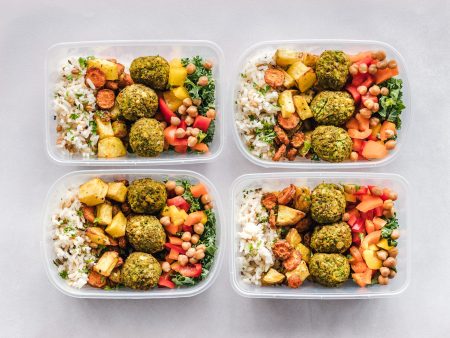
7. Eat before you shop
Never shop when you’re hungry. My husband can always tell when I’ve been ‘hungry shopping’ – we end up with twice as much junk food and spend more than usual. 
8. Make your own lunch
Don’t just plan dinners, think about lunches too and take a packed lunch to work. Even a small £5 expenditure each weekday wastes £100 every four weeks! On sandwiches!
Use up leftovers or make your own salads and sarnies at home the night before. But, ditch sandwich bags in favour of reusable containers to save money over time, and reduce one-use plastic waste. If you have the Olio app there are always free sarnies on there – collect and freeze for the week, most varieties will freeze and defrost perfectly.
When you’re heading out with the kids, make sure that you pack drinks and a picnic too. Otherwise, it’s so easy to spend £30+ on a junk food lunch (without the drinks, snacks and ice-creams that can also accumulate during the day!) and this sort of spending adds up pretty quickly. A £30 spend each weekend, that doesn’t seem too massive, actually amounts to £1500 across the year – I know I’d rather have a holiday!
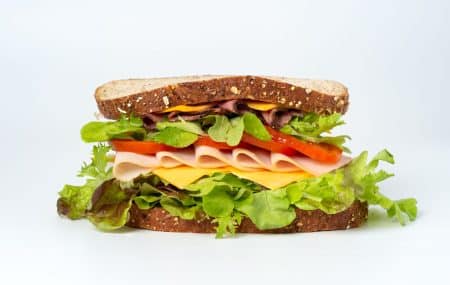
9. Boycott big brands
Where possible go for the supermarket’s own brand products. Branded items can be ridiculously expensive, and they’re often manufactured in the same factories as the store’s own brands. Be brave; swap and do a taste test on a cheaper alternative – if you can’t taste the difference then make it permanent.
Remember that this also applies to beauty items, cleaning products, loo rolls and things like laundry detergent. Read my article on Aldi’s detergent: Swap or not? Almat Non Bio Washing Detergent review – proof that more expensive products are not always better! (Aldi ketchup is brilliant too!) Avoiding branded products could save you up to 30% off of your shopping bill every week!
10. Avoid packaged vegetables
Buy loose to save a lot. For example, if you only need 30g of mushrooms, 1 pepper and 1 red onion for your pasta sauce; don’t buy big bags of each. If you buy all of these items individually, unpackaged, they’ll only cost you pennies and it’ll definitely reduce how much food is thrown away at the end of the week. Avoiding plastic packaging is another win for the planet too!
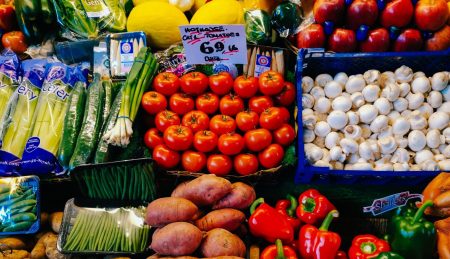
If you’re wondering what to buy with a small budget, and prefer fresh veg, then look for seasonal, local items. Food is much more likely to be budget friendly when it’s not been transported long distances.
11. Swap fresh for frozen
Fresh fruit and vegetables are so much more expensive than frozen and they also have a shorter shelf life. Frozen fruit and veg are are just as tasty and nutritious, they’ll keep for a long time in the freezer and they’re always there when you need them. Best of all, you can just use what you need – zero waste – and they’re pre-chopped which will save you a ton of food preparation time.
Similarly, you can save a small fortune buying frozen meat and fish too. And, if you’re buying treats like pizzas or chicken nuggets, these will definitely be considerably dearer if you’re shopping in the fresh aisles. So, don’t stop buying your favourite things – just go frozen!
Here’s a few saving examples, taken from recent prices at Tesco: An 80g pack of fresh green beans will set you back £1.05 – but for just £1 in the frozen aisle you’ll get a whopping 900g! And, 550g of frozen Salmon was £5.55 – compared with £8 for the same weight in the fresh section.
12. Use dried herbs and spices
Dried herbs are quick, easy and really cheap as a pot will last a long time. But if you love fresh; chop it all and freeze into small tubs or ice cube trays so that nothing goes to waste. You can defrost a portion at a time, as and when needed, saving you money and food prep time.
Herbs and spices are a cheap way to pack in loads of flavour so that you can avoid pre-prepared sauces and seasoning sachets – make your own from scratch for a healthier, cheaper option.
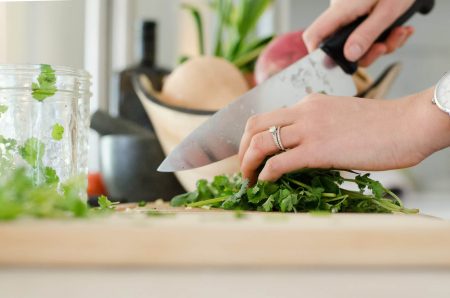
13. Visit the ‘World Foods’ aisle
Try the ‘World Foods’ aisle in the bigger supermarkets, such as Sainsbury’s and Tesco. They’ll often have herbs, spices, pulses and lots of other products at a far cheaper price than they are in the other aisles – in the same store! It’s a total no brainer – same item, half the price!
To prove the point: Coconut oil at Sainsburys in the world foods aisle worked out 60p per 100ml, whilst an equivalent located elsewhere in the store was £1.10 per 100ml – almost double the cost! So, keep your eyes peeled when you shop and always check the labels.
14. Avoid supermarket traps
Don’t be sucked in by the offers! If the item wasn’t on your list when you entered the store, chances are you don’t need it. Offers like buy one get one free can be tempting – but if you didn’t need one of the item, you probably don’t need two! If you find it too difficult to resist then it may be wise to shop online.
Supermarkets also like to put the products that they want to promote / are at the price-point they’d like you to spend at eye-line level, or on the ends of aisles, to help them stand out. Cheaper products are often lower down on the shelves, so make sure that you bend down to check those out.
Compare products for the price against the weight (it’ll tell you on the price label on the shelf) – packaging sizes can be deceiving as they’re often half full (especially with shrinkflation) so make sure that you’re getting the most for your money.

15. Switch to a cheaper supermarket
Wondering which supermarket is the cheapest for your food shop? Budget supermarkets, like Aldi and Lidl, aren’t as cheap as they once were but they still tend to be more affordable than some of the other food shops. (Though lots of the other supermarkets now match lots of their prices to Aldi which helps!)
The small savings add up really quickly, and saving just £20 a week on your shopping will give you an extra £1040 in the bank at the end of the year. If you have a Lidl nearby, hunt out their fruit and veg boxes by the tills – they have loads in them and they’re only £1.50!
Loads of our favourite items come from Aldi, so even if we don’t do a full shop there (sometimes I like to shop online to save time!) we will stock up monthly on things like ketchup, chocolate spread, toilet rolls, detergent and face wash when we’re passing by as the quality for the price often can’t be beaten! Shopping around can often be cheaper than getting it all in one place.
16. Ignore best before dates
Don’t start binning food from your cupboards or fridge based on the best before dates. You’ll need to listen to use-by dates, but this isn’t the case with best before – if it looks ok and smells ok, it’ll probably taste ok!
Things like stale bread can also be given a second lease of life. A quick 10 second blast in the microwave can bring stale bread back to life so, before you bin it, give this a go and you can get back to making those sarnies in no time at all! And, if it really is past its best – blitz it for breadcrumbs, make some bruschettas, grill it with cheese or garlic butter (or both!) or make a yummy bread pudding.
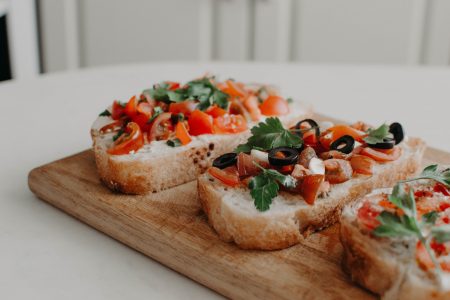
Crushed / broken / soft biscuits can be used as a base for cheesecake, lemon possets or chocolate fridge cake too. And, brown bananas are great for banana bread. Have a look at my recipes for some ideas!
Fruit and veg past its best can be used to make soups, pies or smoothies. Vegetable soup is always my go to when we have vegetables looking sad in the fridge!
17. Look for yellow stickers
We love yellow sticker bargains and regularly scour the supermarkets in search of them! It can be hit and miss, and you’ll need to work out the best time to visit your local supermarkets for the best reductions, but there will often be items reduced to pennies. You’ll most likely save at least 50-75% off of the original price – I reckon yellow label bargains save us a minimum of £10 each week.
Your freezer is your best friend – you can keep meat, cakes, bread… and anything else you come across frozen until you need it. I plan meals for the following week / month around our yellow sticker treasures, for instance – cheap bacon; make a carbonara, cheap sausages; rustle up a toad in the hole, cheap veg; make a soup or stir fry.
It’s also a great way to try things that you wouldn’t usually eat or can’t afford. Last week we had some tasty fish that I wouldn’t have usually splashed out on – but at 50% off it was lovely to have a treat.
18. Save your reward points
Lots of supermarkets, like Sainsburys and Tesco, allow you to collect points every time you shop, and Asda rewards are turned directly into money that can be taken off your next shop. These points can be a great way to save for treats or special occasions like Christmas and birthdays when you’ll need a bit more money to cover a larger shop or some special items. You could also use Tesco points for restaurant meals, holidays and days out too – check out my post on Tesco Clubcard for more info.

19. Try ‘Too Good to Go’
Another app that can get you tasty treats for less than you’d usually pay is ‘Too Good to Go‘. Unlike Olio, it’s not free and you won’t know exactly what you’re getting until you collect, but the food is usually heavily reduced and you’ll be doing your bit for the planet by reducing food waste. It’ll be a great surprise, and you might even get to try something new!
20. Cook from scratch
Cooking from scratch is so much cheaper and yummier than the pre-prepared alternatives. Plus, you know exactly what goes into each recipe and it’s often more nutritious, and lower in salt and sugar too. Here are my top tips to help you to cook from scratch without spending hours in the kitchen or spending a small fortune:
- Chop once: The best way to save time and money, especially if you’re using fresh vegetables, is to pick recipes with similar ingredients. For instance, if you’re chopping onions (whilst crying, if you’re anything like me! 😂) and know that you’ll need more for tomorrow’s dinner, chop double and pop into a tub in the fridge. This will reduce waste and cut down your prep time the next day.
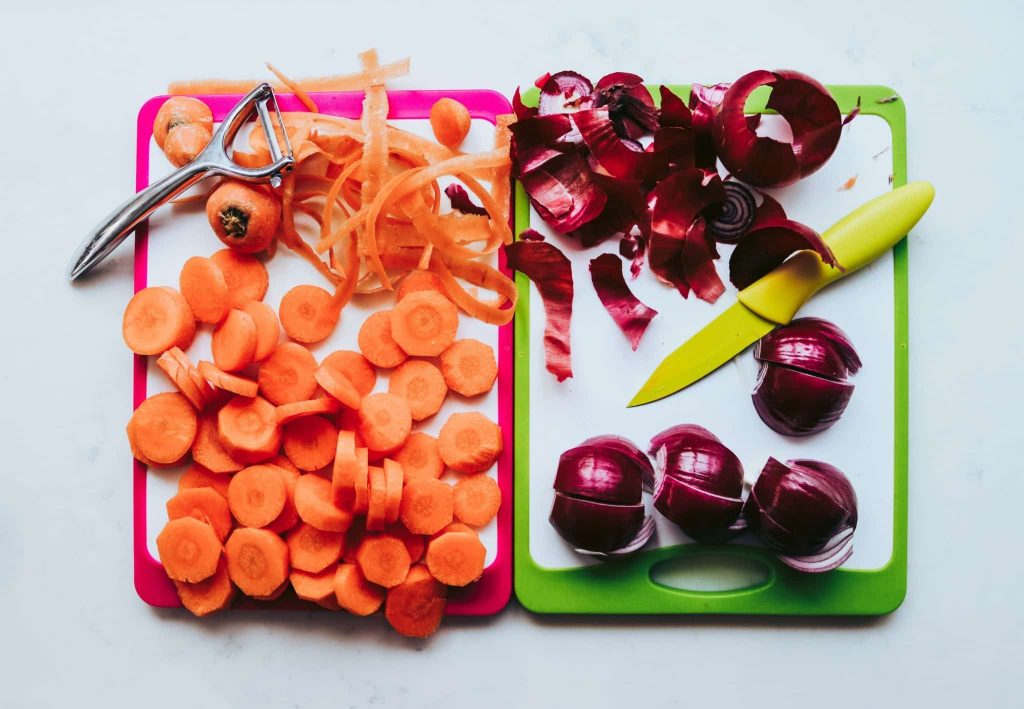
- Minimise peeling: Give vegetables a really good wash so that you can, where possible, avoid peeling and just chop. It will save you time and the skin is actually really nutritious on many types of veg – not to mention the fibre it contains which is great for the tum!
- Put lids on simmering pans: Simply putting the lids on your saucepans will make the contents cook more quickly, so you can get dinner on the table in a hurry. And, you’ll be using less energy, which will help to reduce your utility bills!
- Cheat as much as possible: Don’t make life harder than it needs to be – as I’ve said already – double up and batch cook, and use cheats like pre-chopped frozen vegetables to save time.
21. Buy less meat
We’re definitely big meat eaters in our house so, though I use meat in most meals, I try to use smaller amounts to limit the cost and environmental impact by bulking meals out with other ingredients. Meat might be delicious but it’s also expensive.
This usually means that I include lots of vegetables in every meal, and there are lots of recipes from books like Feed your Family for £20 a Week that show you how to replace some of the meat (with things like oats or mushrooms) without compromising on the taste.
22. Invest in some budget cookbooks
I will always favour cooking over eating out – I just think that there are more exciting things to spend my money on than food! Cooking from scratch is the best way to save money, and homemade is usually the tastiest and healthiest option too!
Over the years, I’ve collected a mound of brilliant cookery books to help me to feed my family well on a budget. If you can make tasty food at home, you’re so much less likely to rely on convenience foods and eating out. Often you can cook it in less time than it would take to wait for delivery! These are my favourite budget cookbooks…
Eat Well for Less
I love BBC’s Eat Well for Less show, and the cookbooks are really good – I’ve been using them for years for family friendly recipes! Eating on a budget doesn’t mean that you can’t maintain a healthy diet, nor enjoy yummy food! The Asian chicken recipe in this one is a family favourite in our house!
Check out: Eat Well for Less on Amazon.
Feed your Family for £20 a Week
I think Lorna does budget friendly cooking really well – the recipes in her book are all simple too, and they frequently make use of frozen vegetables which is so helpful! I find her book great for cheap, quick meals (with cook-from-scratch cheats) because, let’s face it, who wants to spend hours in the kitchen every day?!
Check out: Feed your Family for £20 a Week on Amazon.
The Batch Lady: Cooking on a Budget
I feel like I’m always harping on about the benefits of batch cooking, but you really are missing a trick on saving time and money if you don’t cook in bulk! The freezer is your best friend, and this brilliant batch cooking book is a great place to get started! With a freezer full of tasty snacks and dinners, you’ll be less tempted to pop to the shops or order a takeaway!
Check out: The Batch Lady: Cooking on a Budget on Amazon.
Save Money Good Food: Family Feasts for a Fiver
Another TV show that I enjoyed watching was ITV’s Save Money Good Food, and I promptly bought the cookbook for this one too! Similarly to Eat Well for Less, the book has brilliant family friendly recipes which you can make for a fiver or less; the meatballs are so tasty that the kids will happily help out with the cooking when they’re on the menu!
Check out: Save Money Good Food: Family Feasts for a Fiver on Amazon.
How to Make Anything Gluten Free
I cook gluten-free dinners in our household as I can’t tolerate it, and the kids are both sensitive to it too. And, whilst I’m used to adapting the recipes in my other cookbooks, Becky Excell has definitely transformed our gluten-free cooking! If you’re gluten-free, you’ll know first-hand how expensive shop bought GF food is, and it often leaves a lot to be desired too!
From tasty chicken seasoning, to cheap and easy pizza dough made from GF flour and yoghurt – there are loads of easy, affordable and delicious recipes in her books. She makes being gluten-free on a budget absolutely do-able.
Check out: How to Make Anything Gluten Free on Amazon.
Here are some other budget cookbooks that you might want to check out too:
Jack Monroe: Cooking on a Bootstrap
Limahl Asmall – Tiny Budget Cooking
23. Shop smart for allergies
Having an allergy or an intolerance can be so expensive – and it’s so frustrating since it’s not your fault! Try to seek out products that naturally avoid your sensitivity to reduce costs – for instance, a gluten-free diet can include potatoes and rice without any extra cost or ‘special aisle’ prices. For loads of ways to save money on a gluten free diet, check out my article: How to be gluten-free on a small budget – tips and tricks to reduce your food shopping bill!
24. Shop once
Do a big shop to avoid lots of small trips to the supermarket. Top-up shops usually end up much bigger than planned and all of this can make your shopping bill much higher than you think. Do a large shop every 7-10 days, then get the few fresh bits you need mid-week in one small additional shop if need be.
If you find it hard to make your money stretch across the month, consider doing a big monthly shop instead. You’ll need to set aside some money each week to replenish fresh items, but if you buy all non-perishables at the start of the month, as well as utilising your freezer, you can just do a small weekly shop knowing that you’ve got most of what you need already.

25. Try a ‘no spend’ challenge
If you really need to cut back in a hurry, set yourself a ‘no spend’ shopping challenge, where you decide for a week, or even a month, not to spend any money at all in one area. You could decide not to eat out, or to cut out all treats from your weekly shop – buying essentials only.
You could also decide to have a few days each week, or a week out of each month, where you eat only from your cupboards and freezer, spending no money on food at all. Think outside the box and you will soon see your bank balance grow.
26. Grow your own fruit and vegetables
Another brilliant way to really slash your family’s food shopping bills is to become more self-sufficient. Growing your own fruit and vegetables can be done for next-to-nothing (or even for free if you’re resourceful!) and it’s a great way get healthy food into the kids on a small budget.
You can get started in even the smallest of outdoor spaces, you certainly don’t need a huge garden, and growing fruit in particular can be great a money-saver as it can be really expensive in the supermarkets – especially with the kids eating so much of it!
For a beginners guide on how to get set up, check out my article: How to grow your own fruit and vegetables at home to feed your family on a budget (or for free!)
27. Store your food correctly
Food that is stored properly will last far longer – the life of foods like parsnips, potatoes and apples can easily be extended. And, simply popping fruit into glass jars when you put it in the fridge after the weekly shop will help it to stay fresh for longer (if the kids don’t get their hands on it first! 😉) I keep ours in old coffee jars – you don’t need anything expensive or fancy to get started. Lettuce will keep for two weeks, rather than one, in an airtight container too.
Be sure to follow the guidance on the produce that you purchase, though even items which don’t have to be kept cold might benefit from refrigeration. Eggs, for instance, will last for much longer if stored in the fridge.
Want to save even more?
To really make a change to your family life and finances, try to look at even more ways to live a more simple, frugal lifestyle. For lots of tips to help you to save money, reduce stress, clear debt and save time – you’ll want to check out my article:
How can I live a good life in the UK with little money? 25 tips for living a simple, frugal, minimalist lifestyle!


